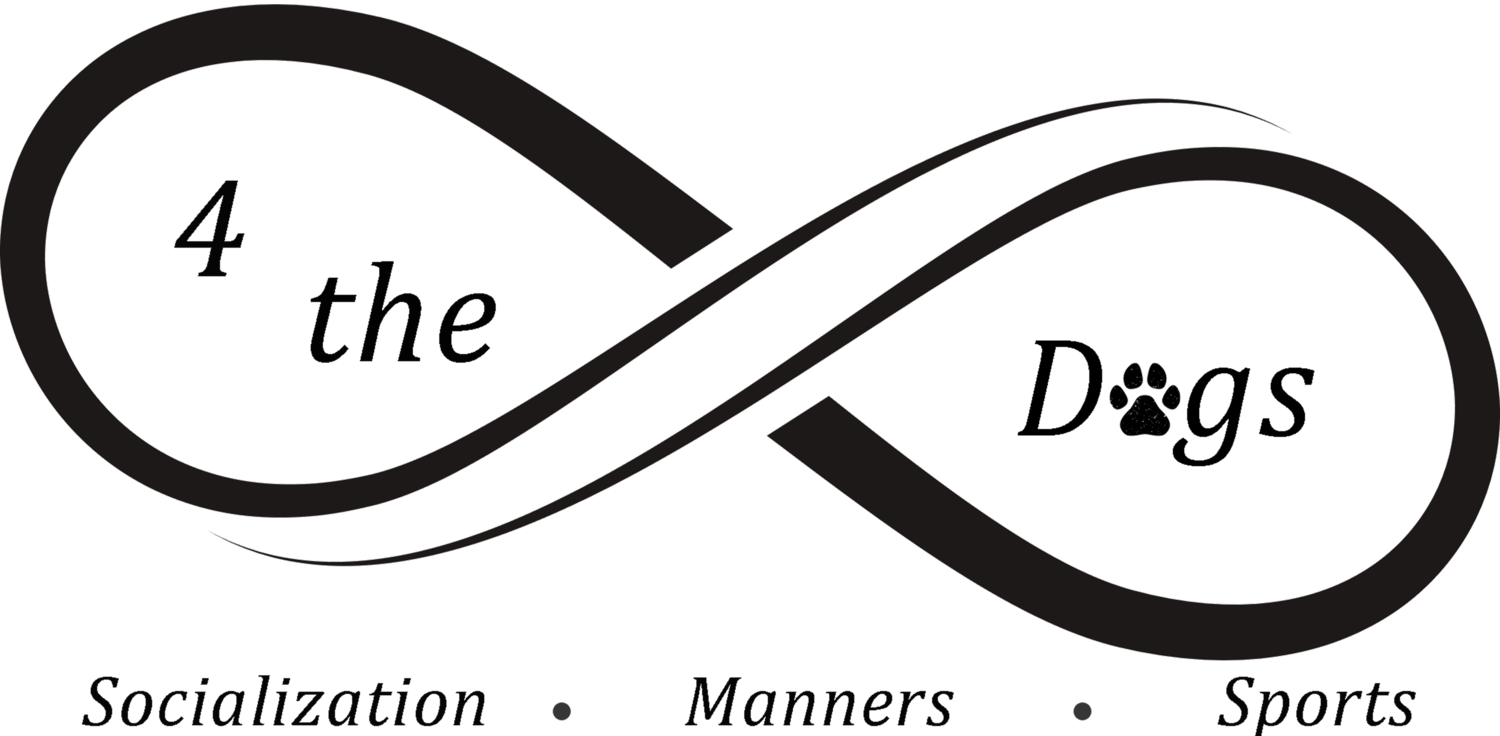Socialization is a term often used when breeders, trainers, and owners talk about a new puppy. Socialization (or a lack of) is often the reason given as to why an older or rescue dog may not behave the way we expect or want them to.
New owners often set out on the journey of socialization with the best intentions, but many do not understand what they are actually teaching the dog and how to properly socialize for success.
It’s common for a trainer to hear things like:
“I took him everywhere with me!”
“We always let dogs and people say hi to him when we are on walks.”
“He plays with my neighbor’s dog so he is socialized.”
However, the process is a bit more complicated. Socialization is indeed the activity of mixing socially with others, but it is also the process of learning to behave in a way that is acceptable to society.
How does society expect dogs to behave, and how would YOU like your dog to behave? Everyone can probably agree that we expect dogs to listen to basic commands from their owners/handlers. Dogs who lunge and bark at cars or people as they walk by your yard become a nuisance. When we see a dog with their owner at a park or at a coffee shop, we expect to be able to walk past the dog without interaction. When your dog is at the park with you, are they relaxed? Or are they excited and trying to meet all the people?
It’s so tempting to let your puppy say hi to everyone because we NEED those positive human interactions, but what is the puppy really learning?
You may think your puppy is learning that people are good and kind. The puppy may actually be learning, “When I see a new person and they come say hi or I go say hi! Many times they even have TREATS!”
This is why we often see dogs who seem to say, “OMG!!!! I MUST GO SEE ALL THE PEOPLE! THEY MIGHT HAVE TREATS! THEY WANT TO PET ME!” On the other hand, we also see dogs who may seem to say, “Oh no, here comes ANOTHER person I have to say hi to. I really don’t feel like it, but mom will have them give me a treat, so I guess I will pretend to care.”
Dogs, just like people, may be more extroverted or introverted due to their breeds and individual personalities. Both types have different training challenges. Through socialization at a young age, we can tailor our plan to build each dog’s confidence based on their own natural breed tendencies and traits.
Over this series of 4 blog posts, we will look at socialization with other dogs, humans, and the world. I hope you will follow us throughout the series!
***Socialization does not have to stop during a pandemic. Although we are challenged to stay at home as much as we can and social distance, the mental health and well-being of our young dogs and new additions is also important. Over the next few weeks, we will discuss different components of the socialization process. These components can still be addressed while adhering to local and state regulations on social distancing and minimizing the spread. If you need help developing a socialization plan for your new puppy now or in the future, please reach out. We will be happy to help you through our remote consultations and training sessions.***




